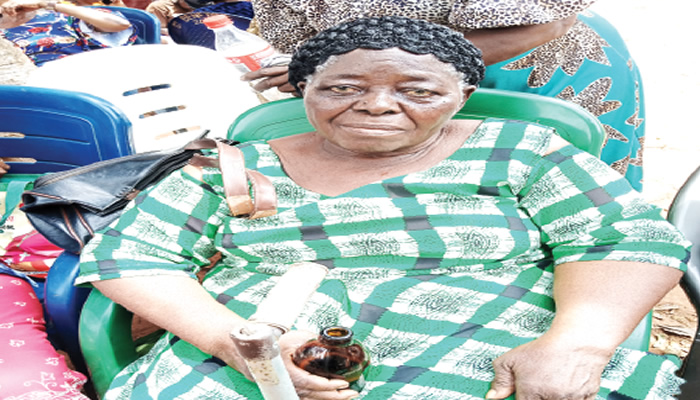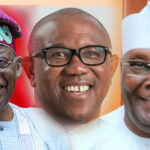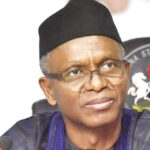
81-year-old woman, Patricia Nkansimuo, who voted during Saturday’s presidential and National Assembly elections at the Okpo Polling Unit, Ward 11, Agulu Local Government Area of Anambra State, speaks with IKENNA OBIANERI on the electoral exercise, the gains, lessons and losses, among others
How many polls have you participated in?
I have come to cast my vote and also perform my civic responsibility as a responsible citizen of this country in the hope of effecting positive change through the ballot. I’ve been voting in Nigerian elections since they began. I was born in 1942. I witnessed the pre-colonial era, and I have been participating in elections right from the 1960s.
How did it feel to be one of the over 80 million Nigerians who voted today?
I feel excited. I have never missed voting in any election since I attained the voting age. But today’s own gives me a different feeling, with hope that a new and better Nigeria will emerge after this process.
As I cast my ballot, I did so in tears, as you can see boldly written on my face. I cried while casting my ballot, not because I love to do so, but because the dream of our fatherland has been truncated by leaders who don’t have the love of the country at heart. This is certainly not the dream we had envisioned for ourselves in this country.
Over 90 per cent of the population of the country lives in poverty; this is because of bad governance, and Nigerians and Nigeria do not have any business being where they are today. So, this election is a vote against bad and oppressive governance.
How will you describe your experience with past elections?
What I have come to observe is that every election year comes with its own peculiarities and uniqueness as a result of population surges and technological changes, and these factors play determinant roles in shaping the outcome of elections. The elections of 1979, 1983, 1993, 1999, and so on were different from what we are seeing today.
During those eras, the process was less strenuous as a result of a smaller voting population, and registration and collection of voter cards were less ambiguous.
Unlike now, the processes were less stressful back then, even starting with the registration process, but thankfully, technology is beginning to simplify the entire process once again.
When it comes to technology, how would you describe the current voting system in terms of the Bimodal Voters Accreditation System?
It is a good development. It is a remarkable improvement over previous polls.
Although the technology has its own shortcomings, just like every other innovation, there is room for improvement.
When we used it in 2015, it came with a lot of challenges; in 2019, it was a lot better; and now, in 2023, we have witnessed remarkable improvements in the technology.
In the next election, we hope it will still be improved upon. So it is a work in progress. I have voted seamlessly all because of the BVAS, and the fact that it is designed to also curb cases of rigging makes it more unique. I must also commend the Federal Government and the Independent National Electoral Commission on the use of the new technology. It made the whole process seamless and easy and will curb a lot of irregularities. The BVAS worked effectively. It has not happened this way in the history of our elections.
Since you’ve witnessed and participated in many elections in the past, do you think the campaigns for the 2023 elections were based on issues?
In my own assessment, most of the campaigns were not issue-based, and this is because our politicians see elections as a do-or-die affair. They abandon the fundamental issues they are supposed to address and start chasing shadows. This is because they are always very desperate to grab power, and for this reason, the candidates and political parties don’t address issues during their campaigns.
In the past, candidates campaigned based on their party’s manifesto, and it was a unique selling point. That is why politicians at the time acted in the best interests of the people.
But today, it is no longer the case. These days, you see a politician who is in office still boldly campaigning, even if he or she has nothing tangible to campaign with. It is high time it was enshrined in our laws that any politician who mentions the name of any opponent during campaigns or rallies should be disqualified. With this, there will be sanity.
Why did you come out to vote today?
I trekked many kilometres to this place. I have come to vote once again because I want a new Nigeria. The country has been badly messed up, and we expect that the new leaders that will emerge from this process will have the capacity to reposition the country. We have suffered a lot in the past few years, and we hope to see a new dawn. I have just cast my vote; I have done what is expected of me, and I have handed the rest over to God. I cannot make the needed change by staying at home and grumbling; the ballot is where the needed change begins.
What are your expectations from the next president?
The expectations are very high. Like I said before, this country has been badly mismanaged, and it takes someone with capacity, competence, and wherewithal to salvage it.
Honestly, I pity the person who will take over as the next president because he has a lot of work to do. And that is why we must get it right by electing someone with the capacity to lead it.
What areas or lapses would you like the authorities to correct before the next election?
While I commend INEC and other relevant agencies for their efforts in this election, I must say that a lot still needs to be done in terms of logistics and technology, although it is a work in progress.
Voting materials and electoral officers arrived very late at most polling units in some localities, and it is most pathetic, painful, and saddening that many voters did not vote as INEC officials told them that the voting period had elapsed in order to enable them to upload the results of the elections to INEC headquarters.
An elderly woman I know struggled to register and collect her voter card in one of the communities, but she and many others were unable to vote after waiting in line for more than 12 hours for INEC officials. It’s heartbreaking. These are areas they should improve upon before the next election.
Did you have any doubts or fears that the election would be held in the South-East, given the threats from all sides?
I thank God that the election went on peacefully despite security concerns, and I commend our security operatives for living up to expectations. It was true that there were tensions before the election, but the day turned out to be the most peaceful.
Another thing that fuels tension during elections is the manner in which our politicians carry out campaigns; it contributes heavily to causing tension among the supporters, and it keeps escalating.
I commend the voters for their peaceful disposition, enthusiasm, and belief in the electoral process. This is like never before in recent times, and I believe that with this, the next election will be better than the last.
What is your advice for all the candidates?
My advice for them is not to see the election as a do-or-die affair. Elections are games in which there must be a winner and a loser. The winners should be magnanimous in victory and carry every other candidate along. They should remember that the ultimate goal is for the good of our country. The losers too should accept defeat in the spirit of sportsmanship. They should work together to ensure that this country comes out of its present predicament.
What specific area would you like the next president to focus on in the first three months?
It’s the economy. Like I said earlier, the economy is in very bad shape right now, and the next president will need to think outside the box in order to revamp it.
The economy affects everybody, including the elderly like us, and it should be his first priority. Nigerians must begin to smile again, and the next president must do so without delay within the first three months of his administration. Nigerians are tired of excuses. We have been bored with excuses.
You have cast your ballot for the presidency and the National Assembly. Did you vote for candidates of your choice or were you told who to vote for?
Well, I voted my conscience and voted for the candidate of my choice. Like I already told you, I have been voting since the beginning of elections in Nigeria, and at this level, nobody can dictate to me who to vote for. Although there were incidences of people telling some people to vote for particular candidates.
Did you witness any incidences of vote-buying in this election?
I did not observe any of such incidents, and I think it is a good development away from what it used to be in the last three elections before now. Although it is not possible to eradicate it totally for now, it is a work in progress, and this mentality should be discouraged.
What do you think is the difference between today’s politicians and the past ones?
The issue of vote-buying was introduced by today’s politicians; this was not always the case before.
In the past, politicians aspired to public office to serve, which is why the records of the past leaders are still speaking for them now. But today’s leaders aspire to office basically to enrich themselves and oppress the masses. My advice to voters is to stop selling their votes, because when they buy them for N2,000, they use it to steal N2tn from them when they eventually get into office.




